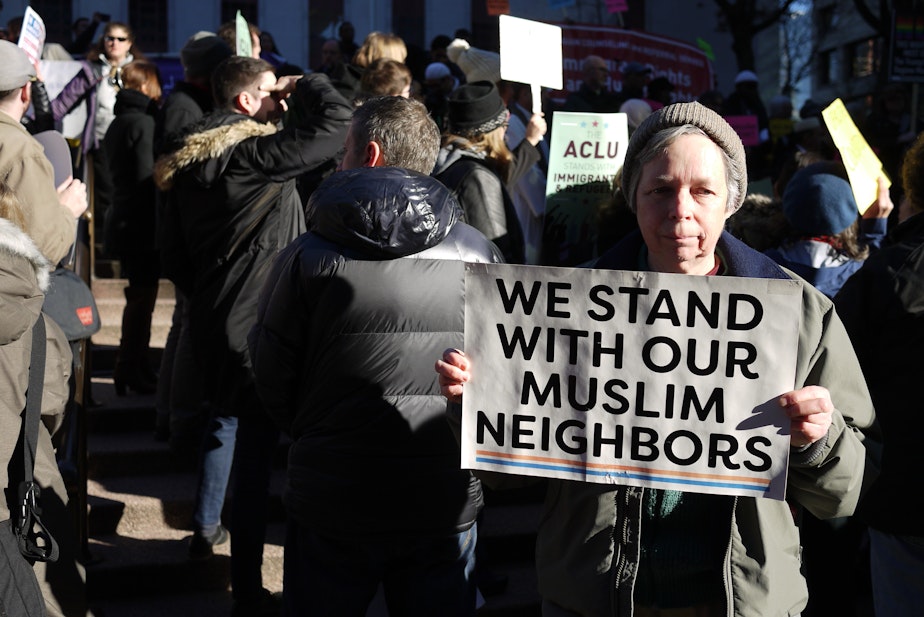Ghosts of Japanese internment rise from Supreme Court travel ban ruling

On Tuesday, the U.S. Supreme Court upheld President Trump’s latest travel ban that barred people entering the U.S. from five majority Muslim countries as well as North Korea and Venezuela.
In the 5-4 decision, the majority opinion stated that the ban fell "squarely within the scope of Presidential authority.”
Trump said his executive order was about national security and securing the border.
“But I think we all know that it’s really about his prejudice against Muslims,” said Tom Ikeda, of Seattle nonprofit Densho. His organization collects oral histories of Japanese internment during World War II.
Ikeda connected this latest ruling to a previous decision made by the Supreme Court that upheld Japanese internment. As a historian looking back, he said, he sees many of the same factors at play today.
Sponsored
“The underlying causes of these major actions are things like fear, hatred or prejudice, and a failure of political leadership," Ikeda said, speaking on KUOW’s The Record. "And when you have that sort of mixture, bad things happen."
Sahar Fathi, an Iranian-American lawyer with One America Votes, said the ban and the court’s ruling was blatant discrimination.
“To me it felt like somebody very specifically who has a lot of power didn’t like me and my people and came out with these policies,” she said.
But when the ban was upheld, her phone started ringing and buzzing nonstop. That much gave her hope.
“Every time I talk to somebody, they want to know where they can be," Fathi said." There is not a single person who has come up to me and said, ‘Oh yeah, that’s how it should be.’ Everyone is offended by this, everyone is upset by this."
Sponsored
"That makes me feel confident going into tomorrow," she added.
Ikeda echoed that hope.
"People see you, and hear you, and support you – and how important that is, for all of us to come together in these really dark moments of our country," Ikeda said. "As difficult as this is, in the darkest moments of the Japanese American community during WWII, there is this strength of resilience that emerges – as long as we stay together."
Fathi: “Yes, we have a history of doing horrific things to people of color, to immigrants, to refugees, but we also have a history of standing up and saying that wasn’t OK, we’re not going to do it again. I don’t believe the war is over, we’re in the middle of it and we may have lost a little battle, but we’re still in there.”
Note: Audio includes an interview with Associated Press reporter Mark Sherman.
Sponsored
Produced for the Web by Kara McDermott.


